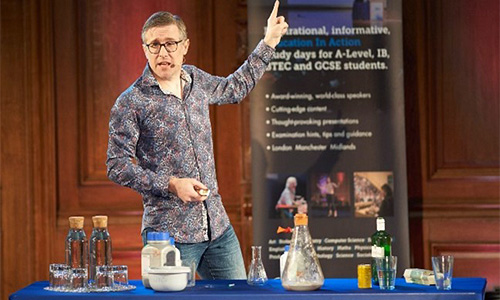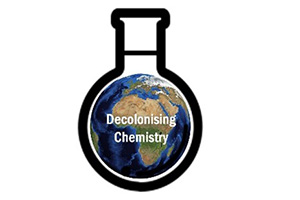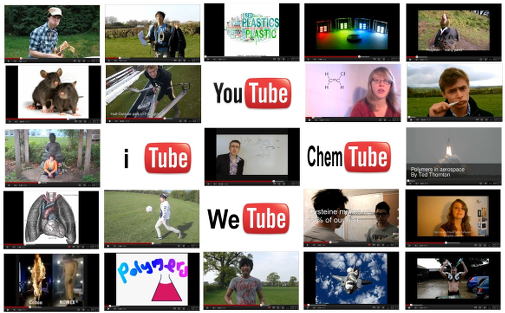Professor David K. Smith
Education and outreach
Awards
- Science for Society Award, Society of Chemical Industry, 2022
- 'Most Inspiring Academic' Award, York University Students' Union, 2019
- National Teaching Fellowship, Higher Education Academy, 2013
- Most Innovative Teacher Award (Shortlisted), Times Higher Education, 2012

Professor David Smith delivering an outreach lecture
Educational positions of responsibility
- Member of University Teaching Committee: 2016-2022
- Academic Chair of University of York Widening Participation Scheme: 2012-2021
- Chair of Board of Studies: 2010-2015
- Chair of Departmental Teaching Committee 2008-2010
- Board Member of Education in Chemistry 2008-2014
Educational activities
Public engagement and interactive lectures
I give regular schools/public lectures on topics as varied as Medicinal Chemistry, The Hidden Chemistry of Afternoon Tea and The Chemistry of Breaking Bad. These lectures are interactive, including chemical demonstrations and mass audience participation and have been delivered at The Royal Institution and The Institute of Education. I was also Merchant Adventurers’ Science Discovery Lecturer.
My undergraduate lectures are similarly interactive. I have delivered national training sessions for new physical science academics, as well as publishing on lecturing styles in Journal of Chemical Education.
Organic pedagogy - reaction mechanisms and context-led teaching
I have developed a series of priority and selectivity rules to assist in the teaching of organic reaction mechanisms to first year university students. This innovative approach has been published in Journal of Chemical Education. The goal is to empower students to work out reaction mechanisms from a set of simple principles, rather than simply memorise them. In this way, they gain a deeper insight into reaction mechanisms, think more like organic chemists, and are better prepared for roles in, eg the pharmaceutical sector. This approach is demonstrated with examples from the real world, ranging from the synthesis of dental anaesthetic lidocaine, to the mechanistic chemistry in the hit TV show Breaking Bad. This context-led approach enhances student engagement and learning.

Scheme of approach to mechanistic teaching - from key concepts, developing mechanistic priority rules, to predict mechanisms and understand real-world examples.
Decolonisation - strategic approaches to diverse teaching
I have been part of a team aiming to decolonise our teaching in York Chemistry. In particular, I developed some of the strategic approaches used to diversify teaching. As exemplars, my courses ‘Introduction to Medicinal Chemistry’ and ‘Introduction to Colloid Science’ both present world-spanning overviews of the scientific development of these subjects stretching all the way back to Ancient times, and feature contributions from a diverse range of scientists. Our approach to decolonisation was published in a highly impactful Journal of Chemical Education article and has further discussed in a major Nature interview.

Logo for York Chemistry, decolonising chemistry project - a globe in a round-bottomed flask.
Student skills - creating skilful chemists
I strongly believe in a contextualised skills-based chemical education. I wrote an influential article in Nature Chemistry that described strategies for engaging learners, and discussed the future of chemical education in an internet age, where the premium has moved from retention of information, to creativity skills such as interpretation and critical thinking, I also wrote a reflective piece on the way in which skills were built into the York chemistry degree during my time as Chair of Board of Studies, in Education in Chemisry.
Social media
I have used YouTube to provide additional student support. My YouTube channel has achieved local, national and even global impact, with ca. 1M video views. This channel was initially created to support first year undergraduates in York, using quirky, low-budget videos, which discuss aspects of everyday life and explain them in terms of the underlying chemistry. Students thrive on this context-led approach to organic chemistry teaching, and enjoy engaging with it. By applying chemical principles to controversial areas, such as ‘legal-high’ drugs or Breaking Bad – undergraduates were highly motivated and the general public were also engaged. Tutorial videos provide deeper insight and help students learn in more depth.
iTube, YouTube, WeTube
Building on my own use of YouTube, I created an active student-learning experience, in which all students present a contextualised aspect of polymer chemistry as a magazine-style article (‘traditional media’) or YouTube video (‘new media’). Hundreds of York students made videos, many of which were educational, innovative and entertaining. In addition to developing student skills, this reached out to learners worldwide, many in non-traditional settings. As such, our students became global educators in their own right. Details of this project were published in Journal of Chemical Education.

Graphic to represent iTube, YouTube, WeTube project, with individual images captured from York Chemistry student YouTube videos.

